
Eat a Peach is the third studio album by American rock band the Allman Brothers Band. Produced by Tom Dowd, the album was released on February 12, 1972, in the United States by Capricorn Records. Following their artistic and commercial breakthrough with the release of the live album At Fillmore East (1971), the Allman Brothers Band got to work on their third studio album. Many in the band were struggling, however, with heroin addictions, and checked into rehab to confront these problems. On October 29, 1971, group leader and founder Duane Allman was killed in a motorcycle accident in the band's hometown of Macon, Georgia, making it the final album to feature the guitarist.

Gregory LeNoir Allman was an American singer-songwriter and musician. He was known for performing in the Allman Brothers Band. Allman grew up with an interest in rhythm and blues music, and the Allman Brothers Band fused it with rock music, jazz, and country at times. He wrote several of the band's biggest songs, including "Whipping Post", "Melissa", and "Midnight Rider". Allman also had a successful solo career, releasing seven studio albums. He was born and spent much of his childhood in Nashville, Tennessee, before relocating to Daytona Beach, Florida and then Richmond Hill, Georgia.

"Melissa" is a song by American rock band the Allman Brothers Band, released in August 1972 as the second single from the group's fourth album, Eat a Peach. The song was written by vocalist Gregg Allman in 1967, well before the founding of the group. Two demo versions from those years exist, including a version cut by the 31st of February, a band that featured Butch Trucks, the Allman Brothers' later drummer. Allman sold the publishing rights later that year, but they were reacquired by manager Phil Walden in 1972.

Forrest Richard Betts, known as Dickey Betts, is an American guitarist, singer, songwriter, and composer best known as a founding member of The Allman Brothers Band.

The Allman Brothers Band is the debut studio album by American rock band the Allman Brothers Band. It was released in the United States by Atco Records and Capricorn Records on November 4, 1969 and produced by Adrian Barber. Formed in 1969, the Allman Brothers Band came together following various musical pursuits by each individual member. Following session work, Duane Allman moved to Jacksonville, Florida where he led large jam sessions with his new band, one he had envisioned as having two guitarists and two drummers. After rounding out the lineup with the addition of his brother, Gregg Allman, the band moved to Macon, Georgia, where they were to be one of the premiere acts on Capricorn.

Win, Lose or Draw is the sixth album by American rock group the Allman Brothers Band. Produced by Johnny Sandlin and the band themselves, it was released in August 1975 in the United States by Capricorn Records. It was the last album to feature bassist Lamar Williams and pianist Chuck Leavell.
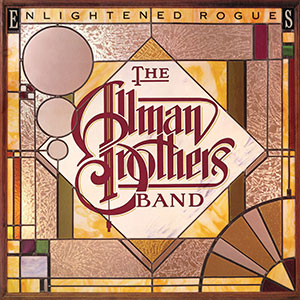
Enlightened Rogues is the sixth studio album by American rock band the Allman Brothers Band. Produced by Tom Dowd, the album was released in February 1979 in the United States by Capricorn Records and PolyGram Records elsewhere. The Allman Brothers Band had broken up in 1976 following internal turmoil, amplified by escalating drug use. The band members splintered into different acts — among those Great Southern, Sea Level, and the Gregg Allman Band. Guitarist Dickey Betts approached his bandmates in 1978 with the prospects of a reunion. After two former members declined to return, they added new members which made it the first to feature guitarist Dan Toler and bassist David Goldflies. Living together in Sarasota, Florida, they rehearsed and wrote the material for their next album in fall 1978.
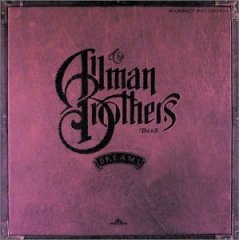
Dreams is a 1989 four-disc box set issued by the Allman Brothers Band.
"Blue Sky" is a song by the American rock band the Allman Brothers Band from their third studio album, Eat a Peach (1972), released on Capricorn Records. The song was written and sung by guitarist Dickey Betts, who penned it about his girlfriend, Sandy "Bluesky" Wabegijig. The track is also notable as one of guitarist Duane Allman's final recorded performances with the group. The band's two guitarists, Duane Allman and Betts, alternate playing the song's lead: Allman's solo beginning 1:07 in, Betts joining in a shared melody line at 2:28, followed by Betts's solo at 2:37. The song is notably more country-inspired than many songs in the band's catalogue.

"Midnight Rider" is a song by the American rock band the Allman Brothers Band. It was the second single from their second studio album, Idlewild South (1970), released on Capricorn Records. The song was primarily written by vocalist Gregg Allman, who first began composing it at a rented cabin outside Macon, Georgia. He enlisted the help of roadie Robert Kim Payne to complete the song's lyrics. He and Payne broke into Capricorn Sound Studios to complete a demo of the song.
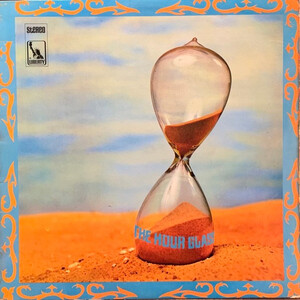
Power of Love is the second studio album by Hour Glass, issued in March 1968 on Liberty Records, the final by the group with the namesakes of The Allman Brothers Band. After the failure of their first album, Liberty Records allowed a greater independence for the group, who had been virtually shut out of the decision making for their first album by the label and producer Dallas Smith. However, with the label's decision to retain Smith as producer, the group, especially Duane Allman, once again felt constricted by their label's expectations for the album.

Laid Back is the debut studio solo album by American singer-songwriter Gregg Allman, released in October 1973 by Capricorn Records. Allman, best known as the vocalist/lyricist/organist of the Allman Brothers Band, first began considering a solo career after internal disagreements with that group. He developed the album as a small creative outlet wherein he would assume full control, and he co-produced the album alongside Johnny Sandlin. Laid Back was largely recorded in March 1973 at Capricorn Sound Studios in Macon, Georgia, with additional recording taking place at the Record Plant in New York City.

Playin' Up a Storm is the second studio album by the Gregg Allman Band and was released on the Capricorn Records label. It peaked at number 42 on the U.S. Pop Albums charts in 1977.

Duane & Greg Allman is an album credited to Duane and Gregg Allman, released by Bold Records in May 1972. The release is essentially an album-length demo recording of the 31st of February, a Tallahassee-based folk rock band featuring drummer Butch Trucks, bassist David Brown, and guitarist Scott Boyer. The 31st of February formed in 1965 and released their first, self-titled album in 1968. This second recording, according to Trucks, was intended to be their second album. It features Duane Allman on guitar and Gregg Allman on vocals. The two had been performing with the 31st of February for several months.

Scott Sharrard is an American musical artist widely known as the lead guitarist and musical director of the Gregg Allman Band. A prolific songwriter and talented singer, he has also released several soul-influenced albums of his own including three with his first band, The Chesterfields, followed by three solo albums and, most recently, the eponymous release by his current band, Scott Sharrard & the Brickyard Band, in 2013.
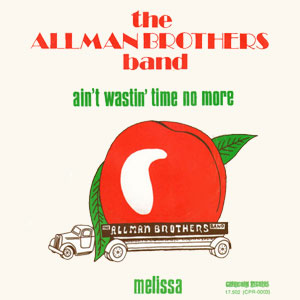
"Ain't Wastin' Time No More" is a song by the American rock band the Allman Brothers Band. It was the lead single from their third studio album, Eat a Peach (1972), released on Capricorn Records. The song, written by Gregg Allman, largely concerns the death of his brother, Duane Allman, who was killed in a motorcycle crash in 1971.
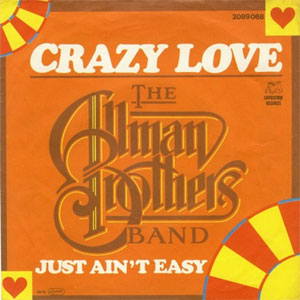
"Crazy Love" is a song by the American rock band the Allman Brothers Band. It was the lead single from their sixth studio album, Enlightened Rogues (1979), released on Capricorn Records.

Searching for Simplicity is the sixth studio album by American singer-songwriter Gregg Allman, released on November 11, 1997 by 550 Music. The album is mainly composed of cover songs associated with Ray Charles, James Carr, and Jimmy Hughes, as well as originals.
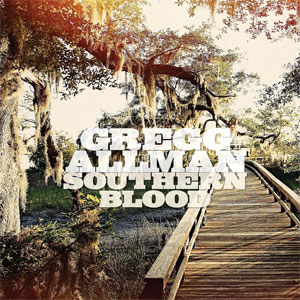
Southern Blood is the eighth and final studio album by American singer-songwriter Gregg Allman, released on September 8, 2017 by Rounder Records, four months after Allman's death. Following the release of his seventh album, Low Country Blues (2011), Allman continued to tour and released a memoir, My Cross to Bear, in 2012. However, that same year, he was diagnosed with liver cancer. His output and schedule in the intervening years gradually slowed, and Southern Blood, recorded in March 2016, became his final album. He and his backing band recorded the album with producer Don Was at FAME Studios in Muscle Shoals, Alabama over a period of nine days.
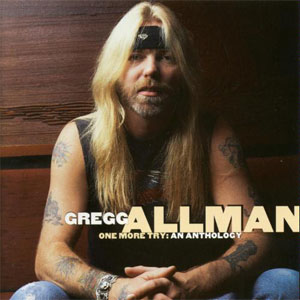
One More Try: An Anthology is a compilation album by American singer-songwriter Gregg Allman, released on September 23, 1997 by Polygram Records and Capricorn Records. The set collects demos, outtakes, and previously unreleased alternate versions of songs by Allman, mainly dating from the period in which he recorded his first solo album, Laid Back (1973).




















